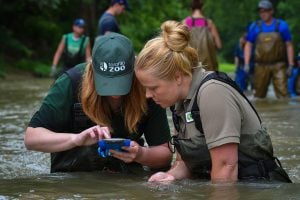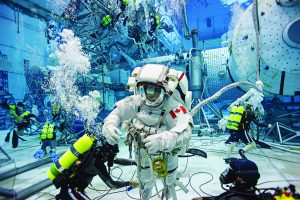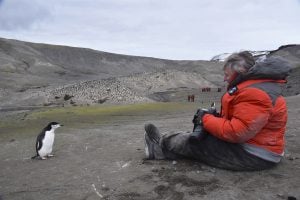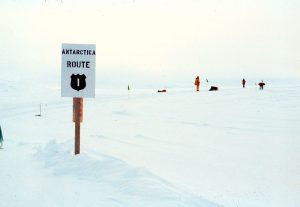
Environment
When it comes to conservation research, are zoos and aquariums doing enough?
A new study finds zoos and aquariums in Canada are publishing more peer-reviewed research, but there is still more to be done
- 1471 words
- 6 minutes
This article is over 5 years old and may contain outdated information.
Science & Tech

As Christian Otto knelt on the side of Mount Everest measuring brain pressure, the emergency physician from Kingston, Ont., never guessed the experience would lead him to space research. But when NASA realized it was facing one of the most serious dangers to the health of its astronauts in recent decades, they solicited Otto’s expertise.
Otto has practiced medicine on a number of the world’s tallest peaks, and in the High Arctic and at the South Pole, where he studied how people deal with long-term isolation. For the past three years, however, he’s explored why some astronauts are slowly losing vision after extended space missions.
In microgravity — and to a lesser extent on very tall peaks — it’s suspected that blood builds in the head, pressuring the skull and optic nerve. Otto and his team compare the symptoms to a similar condition on Earth called idiopathic intracranial hypertension.
Research on Earth, however, can help inform space science, and vice versa, says Otto.
Otto’s research is crucial, particularly given NASA’s goal to increase the length of long-term space travel, which he believes could pose even greater risks, not only to the physical brain, but to psychological health, too. While working as the only doctor at the McMurdo research station in Antarctica, he witnessed the toll social monotony and sensory deprivation can have. He observed outgoing, friendly people retreat into themselves over time, and saw the number of psychological health complaints definitively increase the longer people stayed at the station.
The international space community is watching closely as Otto and other researchers forge ahead with research that aims to help humans more safely explore extreme environments.


Are you passionate about Canadian geography?
You can support Canadian Geographic in 3 ways:

Environment
A new study finds zoos and aquariums in Canada are publishing more peer-reviewed research, but there is still more to be done

Science & Tech
From enduring extreme isolation and psychological strain to operating high-tech robotics and undergoing an intense physical fitness regimen, here’s a glimpse at what it takes to head to space

Science & Tech
As a biologist and photographer, I had long hoped to visit Antarctica — but this journey was much more than a travel dream fulfilled

Science & Tech
Canadian scientists are joining an international team in Antarctica to study the health risks of long-term space missions